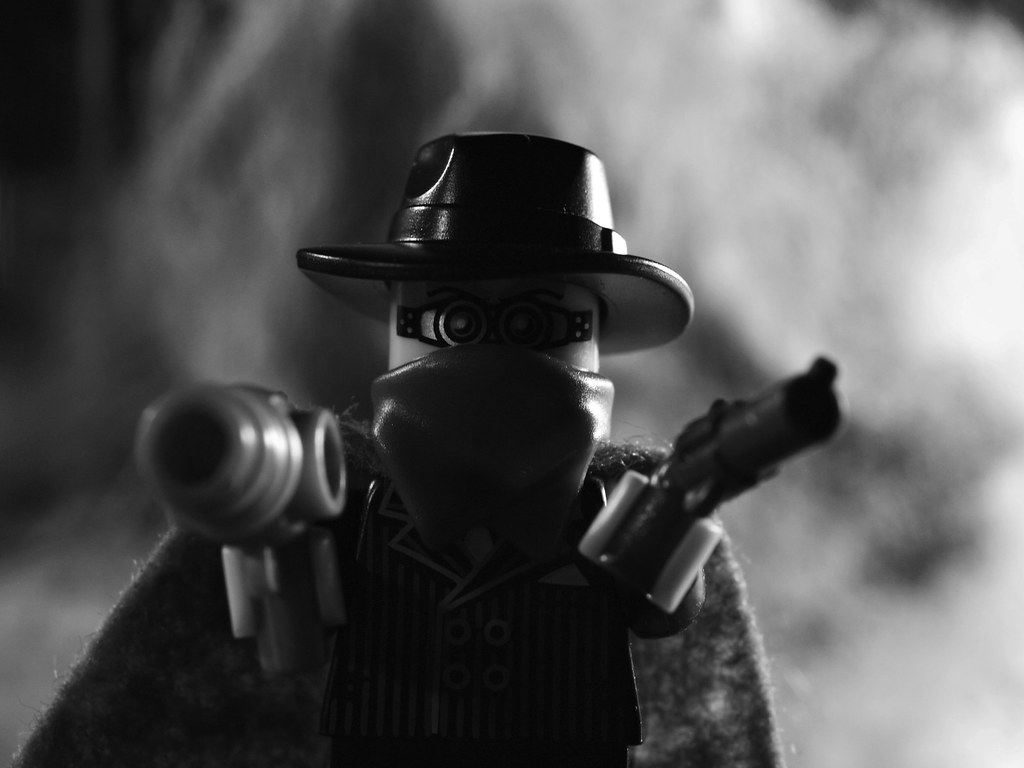Judging by this blog, some people might assume that I just write whatever comes to mind. Indeed, as a freelance writer, I’m sometimes hired by others to write what they want. However, I do have standards, and I do have things that I don’t like writing. If there’s one thing that I hate to write, it’s an unsympathetic protagonist – an anti-hero.
An anti-hero is a heroic character that lacks certain qualities one would expect from a traditional hero like idealism, courage, or morality. Oftentimes, these are characters who do the right thing for the wrong reasons – for example, they might save an innocent victim from a villain with the expectation of some reward. Alternatively, they might have noble intentions but be willing to use evil means to fulfill their goals – think of the “ends justify the means” type of character. The anti-hero differs from a normal flawed character in how they are portrayed in the story. The story never makes clear that the anti-hero’s lack of heroic traits is a flaw. Such evil traits might be treated in the story as a virtue or at least a necessary evil rather than something to struggle with.
Modern pop culture is dominated by anti-heroes. Several of the main characters from Clint Eastwood’s Westerns, the protagonists of mafia movies like Scarface and The Godfather trilogy, Captain Jack Sparrow from Disney’s Pirates of the Caribbean, and Han Solo from Star Wars are all anti-heroes. Each of them has a certain charm to them that makes us like them despite their flaws – a dry wit, charisma that charms both in-story characters and audience members, and, most of all, the vicarious thrill one gets from defying the conventions of their setting.
The appeal of the anti-hero is that he pushes the boundaries. He is edgy – he tiptoes to the edge of what is acceptable and stays there, crossing it at key moments. When he does break those taboos, the energy released is like that of a chemical reaction. Wild West bounty hunters and mafia criminals work because their characters defy the law in pursuit of their own goals, but the defiance of norms can apply to genre conventions too. Han Solo is an interesting character on his own, but he stands out in Star Wars because that movie is otherwise a space opera with clearly defined good and evil sides. In Pirates of the Caribbean, most of the pirates in the setting are brash, macho thugs. Jack Sparrow stands out among them for being effeminate, sneaky, and more reliant on witty words than swords and guns to get what he wants.
These limited experiences contrast the anti-hero with the hero, who is morally ‘safe.’ The anti-hero can also provide good social commentary too. While the hero is a paragon of morality (or at least, the embodiment of heroism of that day and age), the anti-hero strays far enough from that moral view while still not becoming a full-blown villain. This allows the writer to implicitly challenge contemporary moral views through the anti-hero’s decisions.
However, what happens when breaking boundaries becomes mainstream? What place is there for an anti-hero when the entire corporate world becomes obsessed with breaking glass ceilings? The anti-hero becomes cringe-inducing. The rule-breaking he does becomes purely performative. It’s hard to sell yourself as an iconoclast when you parrot what every piece of corporate media says. It lacks the authenticity of the original anti-heroic works.
Another problem of anti-hero overload is that the gimmick gets stale. Conventional heroes have staying power because virtue is inherently attractive. However, breaking the rules is only thrilling so many times before it becomes routine. When you break them enough, they might as well not be there. You have to go and find new rules to break. Like a drug addict, the thrill-seeker has to find more extreme things to do to satisfy his craving.
For me, what’s needed now more than ever is more conventional heroes that have ‘old-fashioned’ moral codes. Against the sea of anti-heroes, such figures would certainly stand out. Some might complain that such idealized figures would be unrelatable, but nothing is stopping a traditional hero from being a sinner. Good heroes have flaws and limitations that they have to work to overcome, of course. That doesn’t require you to create yet another mind-numbing anti-heroic cliché.

Leave a Reply